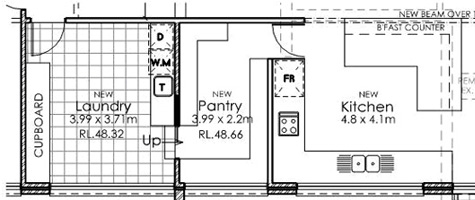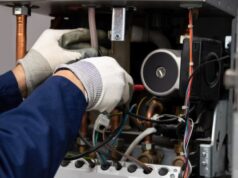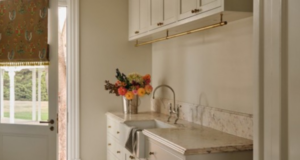
Find out what kinds of tax issues you may need to consider for your investment property.

There are a few different things you need to consider from a tax perspective if you have investment properties.
If you’re buying a property to rent or sell for investment purposes, it’s very important that you have a clear picture of how this impacts on your tax liabilities. If you want to renovate a property and then sell it for a profit, there could be implications for income tax, capital gains tax and GST.
An investment property can be a great investment, but unless you’re very cluey about tax (or willing to do plenty of research), it’s something you’re probably best to discuss with an accountant so that you can properly manage your tax credits and liabilities.
GST and investment properties
Building or very substantially renovating a residential investment property for sale may trigger a GST liability, and the ability to claim GST credits. Generally speaking if you’ve developed a property and it’s considered to be a ‘new residential premise’ then you may be entitled to claim GST credits for purchases you make that go towards the sale of the property. Likewise however, if this is the case you’ll also be liable for GST on the sale of the property.
The ATO defines residential premises as new when:
- they haven’t been sold as residential premises before
- they’ve been created (or recreated) through substantial renovations
- new buildings are replacing demolished buildings on the same bit of land.
If it’s an existing property that you’re renovating for sale, you generally can’t claim GST credits for purchases towards the sale – and nor are you liable for GST. There are exceptions to this, of course, particularly if the property’s also used for commercial purposes. In most cases, existing properties are input taxed.
Capital gains tax liabilities
If the investment property you develop or renovate is sold and you make a capital gain less than 12 months after the original purchase, the full gain is going to be subject to capital gains tax.
If you hold the property for longer than 12 months a 50% discount is applied to your gain on the value of the home – this amount is then subject to capital gains tax.
There are plenty of rules, exceptions, and concessions when it comes to capital gains tax. To see how capital gains will apply to the sale of your rental property, your best bet is to visit the ATO’s website, or have a talk to your accountant.
Income tax, negative gearing and positive gearing
If you own an investment property in Australia, the profits or losses you make from your investment form part of your overall taxable income.
If the interest on the mortgage for your investment property outweighs the income you get from rent, you can claim negative gearing deductions from your assessable income (e.g. your salary or business income). Negative gearing deductions can cover things like the costs of interest on your loan, depreciation, and other rental deductions including property management fees, rates, loan costs and taxes, and maintenance and repair costs.
On the other hand, if you’re making a profit from your investment property above your mortgage interest, it’s said to be ‘positively geared’ – and you’ll need to pay tax on that income.
The exact details and how much you’re able to claim will vary depending on several other factors, and as with all things tax, you should consult your accountant about how best to manage income or losses from your investment property.





